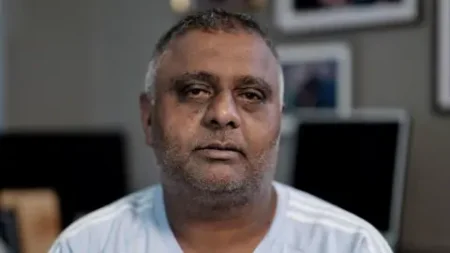In recent discussions around education policy in the UK, urgent calls have been raised concerning the potential reduction or elimination of education, health, and care plans (EHCPs) for children and young people with special educational needs and disabilities (SEND). These plans serve as vital legal documents intended to ensure that children with additional needs receive necessary support from local authorities to access an equitable education. The proposed cuts have been met with fierce opposition from campaigners, parents, and professionals who argue that such changes could drastically affect thousands of children, depriving them of essential educational opportunities.
The Education Secretary, Bridget Phillipson, has acknowledged the complexity surrounding the SEND systems, emphasizing the government’s inherited challenges in managing these provisions. During her recent appearance on the BBC’s Sunday with Laura Kuenssberg program, Phillips was queried on whether she would commit to maintaining EHCPs. Though she recognized the significance of these plans, she refrained from making definitive promises. In contrast, Neil O’Brien, the shadow education minister, has been vocal about the government’s lack of commitment, accusing it of delivering “broken promises and U-turns” regarding educational support for vulnerable children.
Materially, EHCPs function as legally binding contracts that compel local authorities to provide educational support to children with identified needs. They are critical for securing access to tailored educational provisions that cater to individual challenges. As anticipation builds for full details regarding proposed revisions to the SEND framework, which are expected to be released in October, there remains broad concern that any reduction or abolishment of EHCPs could lead to alarming consequences in mainstream education. Campaigners have asserted that such changes would put many children’s education at risk, potentially leaving them without necessary support or, worse, entirely excluded from educational settings.
A poignant letter published in The Guardian outlined these worries, underscoring the dire implications of dismantling EHCPs. The signatories, a coalition of parents, charity leaders, and well-known advocates such as actor Sally Phillips and broadcaster Chris Packham, reinforced the firm belief that despite any systemic issues within SEND, the solution does not lie in diminishing the rights afforded to children and young people. Families, they argue, cannot afford to lose these essential legal protections as they represent a lifeline for many.
As part of her acknowledgement that significant reforms are needed, Phillipson reiterated her dedication to strengthening the support structures available to children, sparking dialogue with parents, disability rights groups, and advocacy organizations to gather insights into improving the status quo. She admitted that encumbrances exist in navigating the reforms but emphasized the intent to devise more effective mechanisms for support. Contrarily, O’Brien has publicly declared that the current government lacks the credibility to make meaningful changes, pointing to instances where they have contradicted earlier stances, particularly concerning teacher recruitment and taxation policies affecting working families.
Current data from the Department for Education reflects a pressing need for effective support systems, as evidenced by the increasing number of registered EHCPs. As of January 2025, there were approximately 638,745 active EHCPs, marking an increase of 10.8% from the previous year. The demand for new assessments to issue EHCPs has also risen, indicating an awareness and need for structured support amongst families navigating the educational landscape.
In response to the mounting apprehensions regarding the future of EHCPs, a Department for Education spokesperson strongly denied any intent to dissolve SEND tribunals or diminish the funding allocated to support vulnerable children. Claiming that it would be misleading to suggest that families, schools, or children could face any erosion of financial support or resources, the spokesperson sought to reassure stakeholders of the government’s commitment to maintaining educational provisions.
As the debate continues, it is evident that the discussion surrounding the future of EHCPs and other SEND provisions touches deeply on the rights of children, the responsibilities of governmental agencies, and the ethical imperatives of providing equitable education for all. The unfolding situation warrants close attention and advocacy as stakeholders strive to ensure that no child is left behind due to systemic changes in educational policy.











